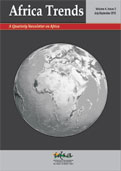Grand Strategy for India 2020 and Beyond
- Publisher: Pentagon Security International
This volume presents perspectives on cross-cutting issues of importance to India’s grand strategy in the second decade of the 21st century. The authors in this volume address the following important questions : What might India do to build a cohesive and peaceful domestic order in the coming decades? What should be India's China and Pakistan strategy? How could India foster a consensus on the global commons that serve India’s interests and values? What strategic framework will optimise India’s efforts to foster a stable and peaceful neighbourhood?
- ISBN 978-81-8274-657-2,
- Price: ?. 995/-
- E-copy available
- V. Krishnappa, Princy Marin George |
- 2012 |








